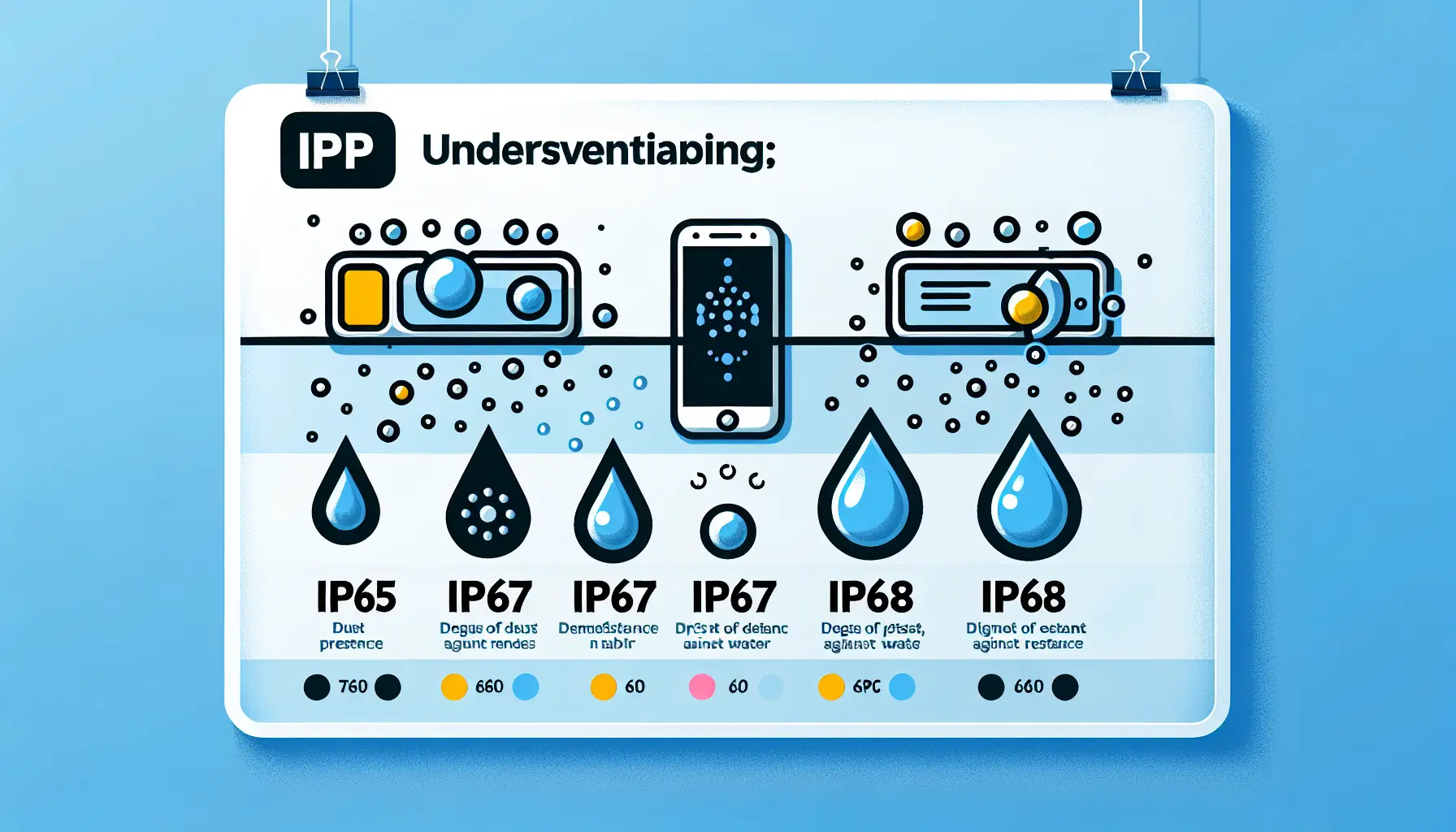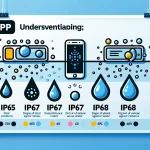
Estimated reading time: 8 minutes
Key Takeaways
- Understanding IP Ratings: IP ratings provide clear information on how well devices resist dust and water.
- IP68 Significance: An IP68 rating means complete dust protection and the ability to withstand water immersion beyond 1 meter.
- Smart Shopping: Knowing IP ratings helps you make informed purchasing decisions based on your actual needs.
- Limitations: IP ratings do not cover all hazards, and protection can degrade over time.
- Maintenance Tips: Regular checks and following manufacturer guidelines can enhance device longevity.
Table of Contents
- What Are IP Ratings and Why Should You Care?
- Decoding the IP Rating System
- The Popular IP68 Rating: What It Really Means
- Common IP Ratings Compared
- Using a Waterproof Phone Guide: Making Smart Choices
- The Real Benefits of Understanding IP Ratings
- Important Limitations to Consider
- Practical Tips for Device Protection
- Conclusion: Making IP Ratings Work for You
- Frequently Asked Questions
What Are IP Ratings and Why Should You Care?
Ever wondered what those IP68 labels on your phone actually mean? IP ratings are standardized codes that tell you exactly how well your electronic devices can withstand dust and water exposure. Instead of vague marketing terms like “water-resistant,” these ratings give you concrete information about device protection levels.
Let's break down everything you need to know about IP ratings, focusing on what these numbers really mean for your devices and how to use this knowledge for smarter purchasing decisions. Source
Decoding the IP Rating System
IP stands for Ingress Protection, and the rating consists of two numbers that tell different protection stories:
- The first digit (0-6) indicates protection against solid particles.
- The second digit (0-9) shows water resistance levels.
For example, an IP68-rated device offers complete dust protection (6) and can handle continuous water immersion beyond 1 meter (8). Source
The Popular IP68 Rating: What It Really Means
The IP68 rating represents the highest practical protection level for consumer electronics. Here's what those numbers guarantee:
- Complete dustproofing (6): No dust particles can enter the device.
- Maximum water resistance (8): Can survive continuous immersion deeper than 1 meter.
This means your IP68-rated phone can handle accidental drops in pools and won't be affected by dusty environments. Source
Common IP Ratings Compared
Let's compare the most frequent ratings you'll encounter:
- IP65: Protected against dust and water jets – good for rain but not submersion.
- IP67: Dustproof and protected against brief water immersion up to 1 meter.
- IP68: Dustproof and protected against extended submersion beyond 1 meter.
Using a Waterproof Phone Guide: Making Smart Choices
When shopping for water-resistant devices, follow these steps:
- Check the specific IP rating details from the manufacturer.
- Look beyond marketing claims for actual certification.
- Consider your usage needs (occasional splashes vs. underwater photography).
Remember that IP68 is ideal for frequent water exposure, while IP67 suffices for occasional accidents.
The Real Benefits of Understanding IP Ratings
Knowing IP ratings helps you:
- Make informed purchases based on your actual needs.
- Avoid overpaying for unnecessary protection levels.
- Use your devices confidently in various conditions Source.
Important Limitations to Consider
While IP ratings are reliable indicators, they have limitations:
- Ratings don't cover all hazards (like high-pressure water or chemicals) Source.
- Protection can degrade over time with wear and tear.
- Laboratory testing conditions differ from real-world usage.
Practical Tips for Device Protection
To maximize your device's water and dust resistance:
- Regularly check port covers and seals for damage.
- Clean and dry your device after water exposure.
- Follow manufacturer guidelines for water exposure limits Source.
Conclusion: Making IP Ratings Work for You
Understanding IP ratings empowers you to make smart choices about electronic devices. Whether you need basic splash protection or full waterproofing, these standardized codes take the guesswork out of device protection capabilities. Use this knowledge to choose devices that truly match your lifestyle and needs, without paying extra for unnecessary features.
Remember: The best IP rating is the one that matches your actual usage patterns. An IP68 rating might be essential for a diving enthusiast but overkill for someone who rarely takes their phone near water. Source
Frequently Asked Questions
What does IP68 mean?
IP68 means the device is completely dustproof and can withstand water immersion beyond 1 meter.
Are all IP68 devices the same?
No, while they share the same rating, the actual performance can vary based on design and materials.
Can I trust IP ratings?
Yes, IP ratings are standardized and provide reliable information about dust and water resistance.
How can I check if my device is truly IP68?
Check the manufacturer's specifications and look for independent testing certifications.
What should I do if my device gets wet?
Dry it off immediately and follow the manufacturer's guidelines for water exposure.









